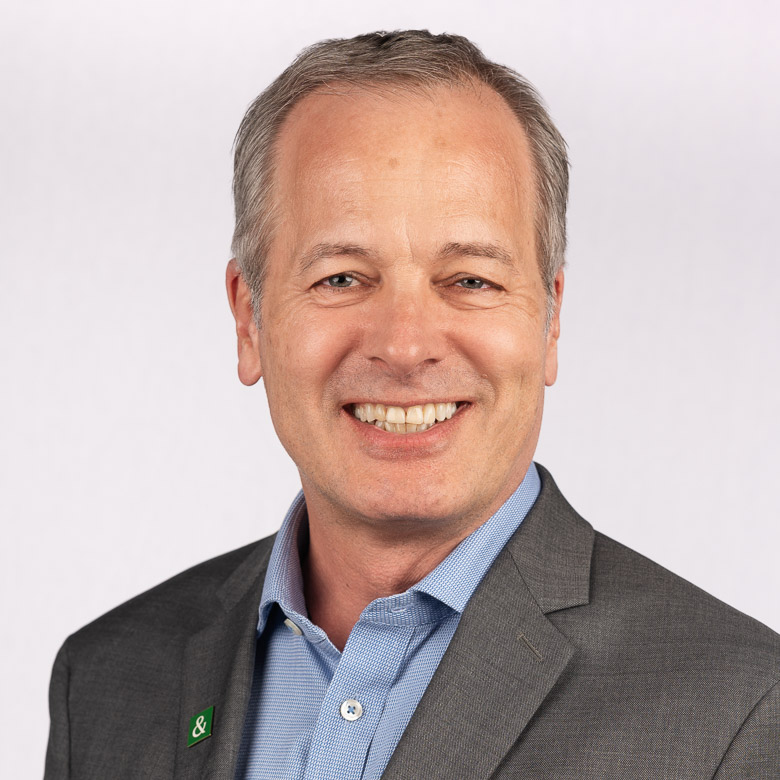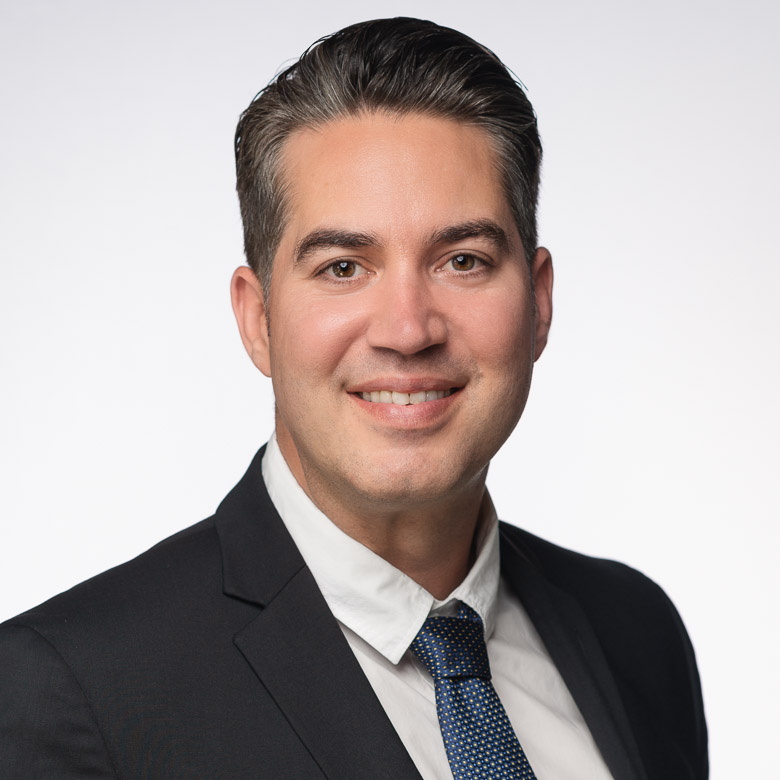Occasionally, an opportunity comes along that’s too good to refuse. For Christopher Foster, CEO of Foster & Associates, that opportunity was the firm he now leads. Almost a decade ago, he left his own firm, Blackheath Fund Management Inc., to take over Foster & Associates, which was founded in 1994 by his father Briar Foster.
Back in the 1990s, conflicts of interest were common, and clients often expected they would be sold to. Briar Foster saw it up close, and after years of pressure to put firm products ahead of client needs, he’d had enough. He set out to build the kind of firm he wished existed, one that put the client first.
That original conviction is the foundation Christopher continues to build on, and it defines the Foster Family Office Group.
Christopher brings his extensive experience with alternative investments to the table to help Canadian investors tap into the same opportunities as institutional and other large entities—and he invests his own family’s assets alongside clients’ assets.
Christopher sat down with Canadian Family Offices recently for a wide-ranging conversation on the evolution of the investment industry in Canada, his firm’s approach and his ambitions for the future.
Why did your father, Briar Foster, decide at age 59 to leave a successful career as a portfolio manager on Bay Street to start his own independent firm?
I remember clearly this period and the conversations that led up to his decision. There was a high level of disgust on his part with the way wealth was practiced in the 1990s. This was a time when even clients had no expectation of being treated well by their investment dealer/wealth manager. They understood they were going to be sold too. The idea that dealers owed their clients a duty of care was still a bit foreign. For my father, someone wanting to do the right thing for his clients and not having any conflicts of interest, it was depressing to have your own firm leaning on you all the time to sell their own products to your clients. That’s what prompted him to start his own shop.

At that time, what were the requirements in the industry around fiduciary duty to clients and what was the general approach to portfolio management/investment advisory services?
The terms portfolio manager and investment advisor are often used interchangeably by clients and many Canadian investors don’t really understand the difference between the two. Part of the problem is how fragmented the investing landscape is and how complicated the titling and registration regimes are today. Simply put, portfolio managers have discretionary authority to build and maintain portfolios. Investment advisors sell products and may also offer other services. Only portfolio managers have a fiduciary duty to put their clients’ interests ahead of their own. This regulatory requirement usually does not apply to investment advisors. Since I started reading the Canadian securities textbooks back in the 1980s, it has always been clear that portfolio managers have a fiduciary duty to do the right thing for their clients and to avoid conflicts of interest. However, 30 years ago, that duty was not vigorously enforced.
At Foster & Associates, our family office group holds ourselves to a higher standard. To us, fiduciary duty is just table stakes. Our obligation goes beyond just managing wealth to taking care of the whole client.
We appreciate that what we do is highly consequential to the other things going on in a client’s life, including transitioning wealth to the next generation.
How has the industry evolved on this front, particularly in light of client-focused reforms? What are your views on fiduciary responsibility and the Ontario Securities Commission’s (OSC) stance on fiduciary duty?
These reforms have led to enforcement of fiduciary duty, which I think is great for clients and the industry as a whole, but fiduciary duty is only one part of client-focused reforms.
The part that still bothers me is the lack of enforcement around conflicts of interest for investment dealers. There has been an effort, but from what I see bank-owned dealers have pushed back and are getting their way. Canada has a long history of regulatory capture and it’s still a problem. In my view, the OSC has allowed the banks to run roughshod over clients’ interests. I think perhaps they hope that CIRO, the Canadian Investment Regulatory Organization (formerly IIROC), will pick up the task, but so far, we haven’t seen much action.
If you are a wealthy Canadian investor, you must ask yourself: Why is my bank-owned dealer fighting so hard against me being given a broad product shelf? Why are they trying to preserve for themselves the right to push their products on me?
It’s a terrible situation. Taking care of people’s money is such a big responsibility, especially when you have discretionary authority. It is the most solemn, priestly responsibility you can have in this industry. People are putting their lives and their kids’ lives in your hands. To have any whiff of conflict or self-dealing is toxic for the industry. Clients should be 100 per cent confident the person managing their portfolio is free of conflicts when selecting securities or services.

What are the guiding principles that have shaped Foster & Associates’ evolution?
After decades of stock-picking, we have decided that individual security selection is a fool’s errand. It’s time consuming and distracts us from where we can actually add value. Instead, we have decided that we are going to expend all our efforts on asset allocation and due diligence on the individual managers we select. This is especially important when it comes to assessing alternative investments. Managing Director Philip Marion and I have a great deal of experience in alternative investments. This is vitally important, because in the hands of the ill-informed and inexperienced they can be dangerous instruments. If you are going to select alternative investments for individual investors, you have to do a lot of work going in, and you have to maintain constant vigilance. One of the reasons I think we have had such success with these products, is that on top of being very widely diversified we also make sure to never reinvest our distribution. We always take the cash and rebalance. This ensures that our alternatives allocation never gets too big, which can easily happen during periods when stocks and bonds decline.
Why was it important for you to join Foster & Associates when you were already leading BlackHeath Fund Management, a firm you co-founded?
When I first considered joining Foster & Associates, my father was still working at 81 years old! Like so many family business owners, he had neglected succession planning, which is something that research will tell you takes five years or longer. I had been in the alternative investment space almost my entire career, so I saw the opportunity to take over an established investment dealer was a golden opportunity. I had the chance to bring alternative investments to an established investment dealer at a time when the public was waking up to the idea that there is more to investing than stocks and bonds. And as an added bonus, I gave my father an opportunity to finally retire. It was a win-win.
What differentiates Foster & Associates today? What is the biggest value-add that clients mention?
I get a lot of positive feedback about my decision to put my family’s assets at the heart of the firm. My family’s accounts are the first clients of the family office group. So, when I’m speaking to a new or prospective client, I can say, ‘If you own it, I own it. If there is a problem with any one of our individual holdings, rest assured, I am equally concerned.’ It’s not a client problem, it’s an ‘all of us’ problem. Plus, everyone pays the same fee. People respond very positively to this. To me, that’s what family office investing is all about. The principals of the firm are investing alongside you. We are in this together. That is the key.
What is your vision for the firm going forward?
Dealing with the complexity and high stakes of generational wealth transfer is where we have a unique opportunity to add value. My ambition is for our family office group to become the natural home for multigenerational money in Canada. We want the firm’s name to be equated with unquestionable stability and scrupulous ethical conduct. To get there, we have to be serious about not only managing money, but managing the firm. We have to consistently upskill all our staff members. We have to constantly modernize. And we must implement robust succession plans to ensure continuity in all our executive leadership roles.
Fortunately, everything is now in place. So often with smaller wealth managers succession gets neglected, which means things are really good for a generation or so, but then everyone ages out at the same time. We have taken these steps to ensure that we can add value in the higher-net-worth, higher-complexity family office space for decades to come.
Disclaimer: This story was created by Canadian Family Offices’ commercial content division on behalf of Foster & Associates.

